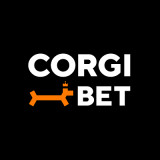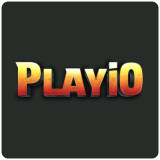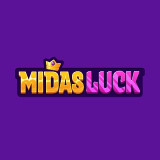Why Do Some Casinos Target Countries?
Online casinos rarely launch with a one-size-fits-all approach. Most of them tailor their platforms for specific countries based on legal rules, local demand, and operational ease. In practice, this localization benefits both the casino and the player.
Licensing and Regulation
Not every casino is allowed to operate in every country. Some hold licenses that are only valid in certain jurisdictions, and others avoid highly regulated markets altogether.
Players Benefit From Localised Services
When a casino targets a specific country, it usually adapts key parts of its platform to make the experience easier and more relevant for local users.
Here's what that often includes:
Language support – Full translations into Serbian, Romanian, Croatian, or other regional languages.
Familiar payment options – PaySafeCard or DinaCard in Serbia, Revolut in Croatia, and e-wallets that are common in Romania.
Currency compatibility – Depending on your location, deposits, and withdrawals in RSD, RON, EUR, or BAM.
Customer support – Availability during local hours and sometimes with agents who speak your language.
Compliance
When a casino is designed for your country, it's more likely to comply with relevant gambling laws, especially when it's locally licensed.
Licensed casinos are required to use secure payment systems.
They must offer responsible gambling tools like deposit limits and self-exclusion.
Terms and conditions are usually clearer and less likely to change without notice.
CorgiBet Casino
Welcome Package Up To €4,500 + 350 Free Spins -
Play now
2
Hot.Bet Casinos
Reload Bonus 50% Up To €200 -
Play now
3
GGBet Casino
Welcome Bonus Up To €3,000 + 900FS -
Play now
4
Rockstar Casino
Welcome Bonus 325% Up To €5,000 + 400 Free Spins -
Play now
Casino Games
3500
Lunched
2025-01-01
Annual Revenues
Multiply Deposit Bonus

Min Withdrawal
10.00
Max Withdrawal
10000.00
Self Exclusion

5
PlayiO Casino
Welcome Bonus 100% Up To €500 + 200 Free Spins -
Play now
Casino Games
3000
Lunched
2024-01-01
Annual Revenues
Multiply Deposit Bonus

Min Withdrawal
20.00
Max Withdrawal
5000.00
Self Exclusion

6
SpellWin Casino
Welcome Package 300% Up To €3,000 + 300 Free spins -
Play now
Casino Games
7500
Lunched
2024-01-01
Annual Revenues
Multiply Deposit Bonus

Min Withdrawal
40.00
Max Withdrawal
8100.00
Self Exclusion

7
Robocat Casino
Welcome Bonus 100% Up To €500 + 200 Free Spins + 1 Bonus Crab -
Play now
Casino Games
7000
Lunched
2024-01-01
Annual Revenues
Multiply Deposit Bonus

Min Withdrawal
10.00
Max Withdrawal
7000.00
Self Exclusion

8
PalmSlots Casino
Welcome Package Up To €2500 + 250 Free Spins -
Play now
Casino Games
5000
Lunched
2022-01-01
Annual Revenues
Multiply Deposit Bonus

Min Withdrawal
Max Withdrawal
5000.00
Self Exclusion

9
Rollino Casino
Welcome Bonus Pack 450% Up To €6000 + 425 Free Spin -
Play now
Casino Games
6000
Lunched
2023-01-01
Annual Revenues
Multiply Deposit Bonus

Min Withdrawal
Max Withdrawal
15000.00
Self Exclusion

10
MidasLuck Casino
Welcome Package 250% Up To €3,000 + 350 Free Spins -
Play now
Casino Games
6500
Lunched
2022-01-01
Annual Revenues
Multiply Deposit Bonus

Min Withdrawal
10.00
Max Withdrawal
7000.00
Self Exclusion

Top Balkan Countries and Their Online Casino Landscape
The online casino scene across the Balkans is shaped by each country’s approach to regulation and player access. Some have established licensing systems, while others are still developing their frameworks or rely on broader international platforms. As a result, the experience can differ from one country to another, not in terms of quality, but in how the industry is managed and accessed locally.
Below is an overview of how online casinos operate across key countries in the region.
Serbia
Online gambling is legal in Serbia and overseen by a national regulatory body. Players use locally licensed platforms and international sites that allow Serbian registrations. While not all foreign casinos carry a Serbian licence, many are still widely accessible and popular among local users.
Regulation has been evolving gradually, with more attention in recent years toward creating clearer rules and improving transparency across the sector. This shift means more reliable platforms and better overall protection for anyone playing from Serbia.
That’s also why many players look for guides or lists highlighting the Best Online Casinos for Serbian Players—platforms that not only accept Serbian users but also provide strong support, familiar interfaces, and fair conditions tailored to the region.
Romania
Romania’s online casino scene is one of the most organized in the Balkans. There’s a national regulator, ONJN, and all legal platforms need a local licence to operate. Many major international casino brands have done just that, which means Romanian players have a wide choice of approved sites. For the most part, the system works well and gives players a bit more peace of mind when choosing where to play.
Croatia
Gambling online is allowed in Croatia, and its legal system is already in place. A few local companies are licensed, but many Croatian players still go to international casinos that serve the region. There hasn’t been a major push to change the rules or limit access, so for now, players are free to choose between local and foreign options.
Bosnia and Herzegovina
Bosnia is a bit unique because gambling laws depend on which part of the country you’re in. Republika Srpska has its own licensing setup, while the Federation is more cautious. Despite the split system, many players nationwide use international casino sites without much trouble. It’s not the most unified setup, but it works for those who want to play online.
North Macedonia
Online gambling is allowed in North Macedonia, and most runs through state-affiliated platforms. These are the official options, but international sites are also commonly used, even if they aren’t locally licensed. The overall environment is stable, and while the choices are more limited on paper, many players look beyond the state options to find something that suits them better.
Montenegro
Montenegro has a relatively open online casino system. A licensing system is in place, and both local and international operators are active. The market isn’t huge, but players here have a range of options, especially from sites catering to the broader Balkan region.
Albania
Online gambling in Albania was mostly shut down in 2019, when the government introduced strict rules. Still, a number of people continue to access casino sites from abroad, often using workarounds like VPNs. Officially, the activity is restricted, but the conversation about gambling laws hasn’t gone away—there may be changes in the future.
How to Choose a Casino Based on Your Country
Not all online casinos are the same. A platform that works great for Romanian players might not offer the same features or access to someone in North Macedonia or Bosnia. That’s why it helps to choose a casino that fits your country’s setup.
Here are a few things worth checking before you register.
Licensing and Oversight
Start with the basics: Who’s behind the casino, and where are they licensed? Some countries, like Romania, have their own regulatory bodies. Others rely on platforms licensed abroad, like those regulated in Malta or Curacao.
If a known authority licenses the casino, that’s usually a sign it follows at least some standards for fairness and security. It doesn’t have to be a local license, but it should be real.
Currency Compatibility
Depositing and withdrawing your currency can make things a lot easier. It avoids currency exchange fees and helps you keep better track of what you’re spending.
If a casino doesn’t support your currency, it doesn’t mean you can’t play—but it’s worth checking whether the platform adds any fees for conversions or uses fair exchange rates.
Language and Customer Support
A casino that offers your local language—Serbian, Romanian, or Croatian—can make a difference. It’s easier to navigate the site, understand the terms, and talk to support if needed.
Response time matters, too. If unsure, try sending a quick question to their live chat. A helpful and timely reply can give you a better sense of what to expect down the line.
Popular Payment Methods by Country
The way players pay at online casinos across the Balkans depends a lot on what’s supported locally and what people feel comfortable using. While some prefer classic options like cards or bank transfers, others prefer prepaid vouchers or e-wallets.
Here’s a general overview of what’s commonly used in each country.
Serbia
PaySafeCard – Very popular due to its availability and ease of use without a bank account.
Bank transfers – Still common, especially for larger amounts.
DinaCard – A domestic card option, though it’s not accepted everywhere.
International cards (Visa/Mastercard) – Available on many platforms, especially offshore ones.
Romania
Visa/Mastercard – Widely accepted and easy to use.
Skrill – A top choice for fast deposits and withdrawals.
Revolut – Gaining traction, especially for mobile users.
Local bank transfers – Often integrated directly into the casino’s cashier system.
Croatia
Revolut – A fast, flexible option that many players now use.
Skrill/Neteller – E-wallets are still used by many for both deposits and withdrawals.
Credit/debit cards – Widely accepted across most platforms.
Prepaid cards – Less popular here, but still available on some sites.
Bosnia and Herzegovina
PaySafeCard – Commonly used due to ease of access and no bank requirement.
Payeer – A flexible alternative when other e-wallets aren’t supported.
Bank transfers – Available, but may take longer to process.
Cards – Accepted, though some players prefer non-bank options.
North Macedonia
Bank Cards (Visa/Mastercard): Widely accepted by international online casinos.
Skrill: A popular e-wallet choice for many Macedonian players.
Neteller: Another e-wallet option, though availability may vary.
Cryptocurrencies: Some players opt for Bitcoin or Ethereum, especially when other methods are limited.
Montenegro
Debit/credit cards – The go-to method for many users.
Skrill – A reliable option for those looking for faster withdrawals.
Revolut – Becoming more common, especially for mobile play.
Crypto – Used occasionally, mostly for convenience or anonymity.
When you play at a casino that’s set up for your country or region, the promotions usually feel a lot more relevant. It’s not just about getting a bigger bonus—it’s about getting one that actually fits how you play, what currency you use, and what kind of games people in your area tend to enjoy.
Casinos that focus on the Balkans, for example, often run campaigns that you wouldn’t see elsewhere. Instead of a generic welcome offer, you might get something tailored to your local payment method, a specific slot provider that’s popular in your country, or even a holiday you celebrate.
Here are a few examples of what that might look like:
Welcome bonuses are paid out in your local currency, so you know exactly what you're getting without doing conversion math.
Free spins on games that are big in your country—some titles trend in one region but barely show up in another.
Reload bonuses that pop up around national holidays or regional events (like a festival or sports match).
Cashback offers are tied to the games or payment methods most commonly used by players in your location.
Player Safety and Country-Specific Risks
Online casinos can vary greatly in how they operate, especially across different countries in the Balkans. The rules are clear in some places, and the platforms are licensed. In others, the situation is less defined, meaning players might use offshore sites without much oversight. That doesn't automatically mean trouble, but it does mean you need to pay closer attention.
That said, there are ways to protect yourself, no matter where you play from:
Search for local player reviews: Forums, review sites, or even social media can give you clues about how a casino treats players from your country. If others have had problems, you’ll often find the warning signs there.
Be wary of overly aggressive promotions: If the bonus seems too good to be true, or if the site keeps pushing you to deposit more for “special offers,” step back. Reliable casinos don’t pressure you. And the best bonuses are usually the ones with fair terms, not the biggest numbers.
Check the withdrawal policy before you play: Some casinos make it easy to deposit but create hurdles when you try to cash out. Look for info on minimum withdrawal limits, processing times, and required documents.
Players in the region have learned to be cautious, especially when trying new sites. But caution doesn’t mean you can’t enjoy the experience—it just means choosing smarter.
When you stick to verified platforms, the risk drops and the experience becomes much more enjoyable. No stress, no surprises—just safe, fair play.










